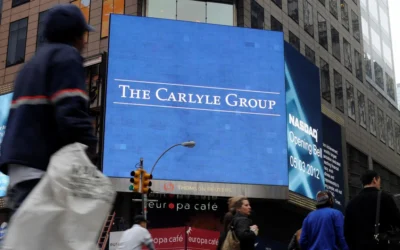KPMG helped a US private equity firm force the insolvency of a UK-listed business to acquire the company without the burden of its £100m pension scheme, according to a case brought against the professional services firm by the accounting regulator.
The Financial Reporting Council has alleged that KPMG and its insolvency partner, David Costley-Wood, were seriously conflicted when they arranged the sale of Silentnight, the UK’s largest bed and mattress manufacturer, to buyout fund HIG Capital. The sale in 2011 took the form of a prepack administration.
The watchdog claimed KPMG had courted HIG as a client for about nine months before it was appointed as administrator to Silentnight, meaning it had an “interest in pleasing HIG”. This presented a conflict with its duties to the company’s creditors and shareholders.
KPMG then “assisted” HIG in its plan to force a liquidity crisis at Silentnight by acquiring and then calling in some of its debt, the FRC claimed. This allowed HIG to purchase the business out of insolvency while its £100m pension liabilities were transferred to the UK’s pensions lifeboat, the Pension Protection Fund.
“[KPMG’s] dealings with HIG and the support they gave for HIG’s plan [to acquire Silentnight] meant they were hopelessly compromised,” said Richard Coleman QC, a barrister for the FRC, in a hearing on Monday.
“False, misleading and materially incomplete explanations, with [KPMG’s] assistance, were given to the Pension Protection Fund, the Pension Regulator and Silentnight itself about the causes of Silentnight’s financial difficulties and HIG’s so-called role as ‘white knight’.”
KPMG and Mr Costley-Wood have denied all of the allegations. KPMG said: “We co-operated fully throughout the FRC’s investigation into this matter. As the tribunal hearing is now under way, it is not appropriate for us to comment in detail, save to say we do not agree with the FRC’s allegations, which are being defended in full.”
It is the second time this year that a Big Four accounting firm has been accused of a loss of objectivity in its insolvency work for a distressed UK business. Deloitte was fined £1m over its work for electronics retailer Comet, after allegations about its close relationship with the group of US investors that acquired it.
The accusations against KPMG’s restructuring unit come as the accountant has started talks to sell the division to raise money while it faces a number of large fines and lawsuits. The sale will also end the risk of conflicts with KPMG’s audit business that make it harder for its restructuring partners to pick up work.
Mr Coleman said: “It was not in the interest of Silentnight, its shareholders and its creditors to bring about its own insolvency at the expense of creditors . . . for the benefit of at least some of the management team and a private equity fund that viewed the company as rich pickings.”
Some of Silentnight’s management team were offered equity stakes in the restructured business by HIG, the FRC claimed.
The PPF inherited Silentnight’s underfunded pension scheme in April 2011, which put the pensions of its 1,300 members at risk. The HIG deal led to criticism about “pensions dumping”, in which investors can cast off a company’s pension liabilities through a prepack insolvency procedure.
The Pensions Regulator has launched proceedings against HIG in a bid to force it to pay a sum equivalent to the pension fund deficit at the time of the buyout. HIG challenged the proceedings claiming they are unlawful and unfair.
HIG is not a party to the FRC’s case. The private equity firm did not immediately respond to a request for comment on Monday.
Silentnight Group reported profits of £7m on revenue of £133m in the year to February 2019. The company, which is still owned by HIG, employs about 1,000 people.
Source: Financial Times
Can’t stop reading? Read more
Carlyle edges ahead in €6bn pursuit of BASF’s coatings division
Carlyle edges ahead in €6bn pursuit of BASF’s coatings division Carlyle Group has emerged as the...
CVC expands US footprint with $1.75bn acquisition of data-driven insurer Bamboo
CVC expands US footprint with $1.75bn acquisition of data-driven insurer Bamboo CVC Capital...
Bain Capital closes $14bn flagship buyout fund, topping $10bn target
Bain Capital closes $14bn flagship buyout fund, topping $10bn target Bain Capital has completed...




